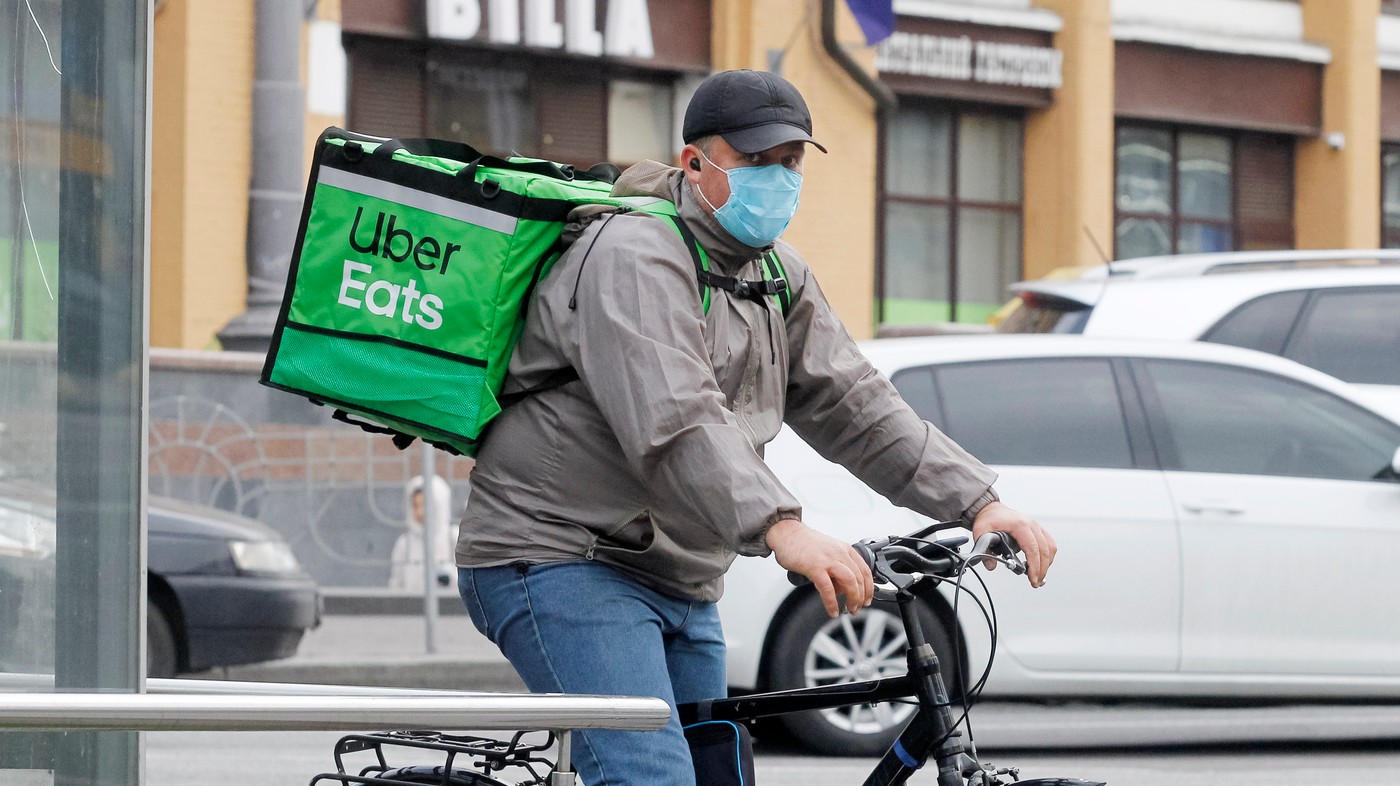Uber Asks US Government to Give Its Workers Health Insurance
In a desperate bid, Uber wants a federal fix to the problem of its drivers wanting livable wages and healthcare coverage.
By Edward Ongweso Jr Mar 23 2020

SOPA IMAGES / CONTRIBUTOR
In a letter to the President, Uber CEO Dara Khosrowshahi asked Donald Trump to do something Khosrowshahi has refused to do for years: provide "more social protections" like health insurance to gig workers:
"The current binary system of employment classification means that either a worker is an employee who is provided significant social benefits or an independent worker who is provided relatively few.
For independent workers like drivers and delivery people, and for work platforms like Uber, this presents a dilemma: reclassifying these workers as employees could result in the provision of more social protections, but the reality of employment means it would eliminate a key value proposition of this type of work. Instead of true flexibility—where workers need not report at a certain time or place, can start or stop working at the tap of a button, and can work on multiple platforms simultaneously—driving or delivering would come to resemble the kind of shift-based work that many people cannot fit into their lives."
The problem is, however, working for Uber is neither flexible nor independent. Uber functions exactly like an employer but doesn’t give its drivers any of the benefits many employers do. In New York City, Uber abandoned flexibility and imposed a shift-based quota system that restricted drivers' access to the app. As it grew increasingly more strict, some drivers were pushed to sleep in their cars to meet its demands. On the question of independence, drivers are algorithmically managed in ways that often go beyond traditional employment. Uber drivers are flexible and independent in the sense that, more so than most workers in our economy, they are expected to make do with fewer wages, less social benefits, and less control over their own labor and livelihood.
This push for a “third category,” then, makes sense as part of Uber’s fight for the right to misclassify workers, minimize labor costs, and someday achieve profitability. In California, where Assembly Bill 5 promises to outright reclassify gig workers as employees, Uber launched a $110 million ballot initiative (with help from Lyft, DoorDash, Postmates, and Instacart) that seeks to enshrine this third category. Here is Uber’s in its own IPO filing stating, in no uncertain terms, that reclassification would pose an existential threat:
When you take all of this into account, it’s easy to see what Khosrowshahi is doing here—it’s what Uber has been doing this past decade: begging for more subsidies to continue this unsustainable business model. The U.S. should be moving toward universal free healthcare for all, but that’s not currently the world we live in. And so all Khosrowshahi is acknowledging in his letter is that the business model his company pioneered has left millions of people around the country vulnerable and his company has done little to fix it.
Uber’s core business is ride-hailing, which relies on subsidies from drivers classified as “independent contractors” who rent or own the vehicles Uber needs for revenue, who assume every expense related to these vehicles, and who drive the vehicles for low wages without pesky benefits like health insurance. Uber’s core financing has come from private investors—it’s received more than $20 billion in investment that it has used to artificially suppress fares to attract and retain customers. Most importantly, these low fares undercut competitors. It’s not just ride-hail: Uber has expanded the model to freight operations and food delivery, on-demand labor, and scooters.
"If, as a result of legislation or judicial decisions, we are required to classify Drivers as employees (or as workers or quasi-employees where those statuses exist), we would incur significant additional expenses for compensating Drivers, potentially including expenses associated with the application of wage and hour laws (including minimum wage, overtime, and meal and rest period requirements), employee benefits, social security contributions, taxes, and penalties. Further, any such reclassification would require us to fundamentally change our business model, and consequently have an adverse effect on our business and financial condition."
When you take all of this into account, it’s easy to see what Khosrowshahi is doing here—it’s what Uber has been doing this past decade: begging for more subsidies to continue this unsustainable business model. The U.S. should be moving toward universal free healthcare for all, but that’s not currently the world we live in. And so all Khosrowshahi is acknowledging in his letter is that the business model his company pioneered has left millions of people around the country vulnerable and his company has done little to fix it.

Uber’s core business is ride-hailing, which relies on subsidies from drivers classified as “independent contractors” who rent or own the vehicles Uber needs for revenue, who assume every expense related to these vehicles, and who drive the vehicles for low wages without pesky benefits like health insurance. Uber’s core financing has come from private investors—it’s received more than $20 billion in investment that it has used to artificially suppress fares to attract and retain customers. Most importantly, these low fares undercut competitors. It’s not just ride-hail: Uber has expanded the model to freight operations and food delivery, on-demand labor, and scooters.
A third category wouldn’t guarantee a minimum wage, sick leave, paid vacation time, Social Security and Medicare, the right to unionize, protection from sexual harassment or gender discrimination, or a host of other civil rights for workers. It would, however, offload basic protections it should already be giving to the government.


No comments:
Post a Comment